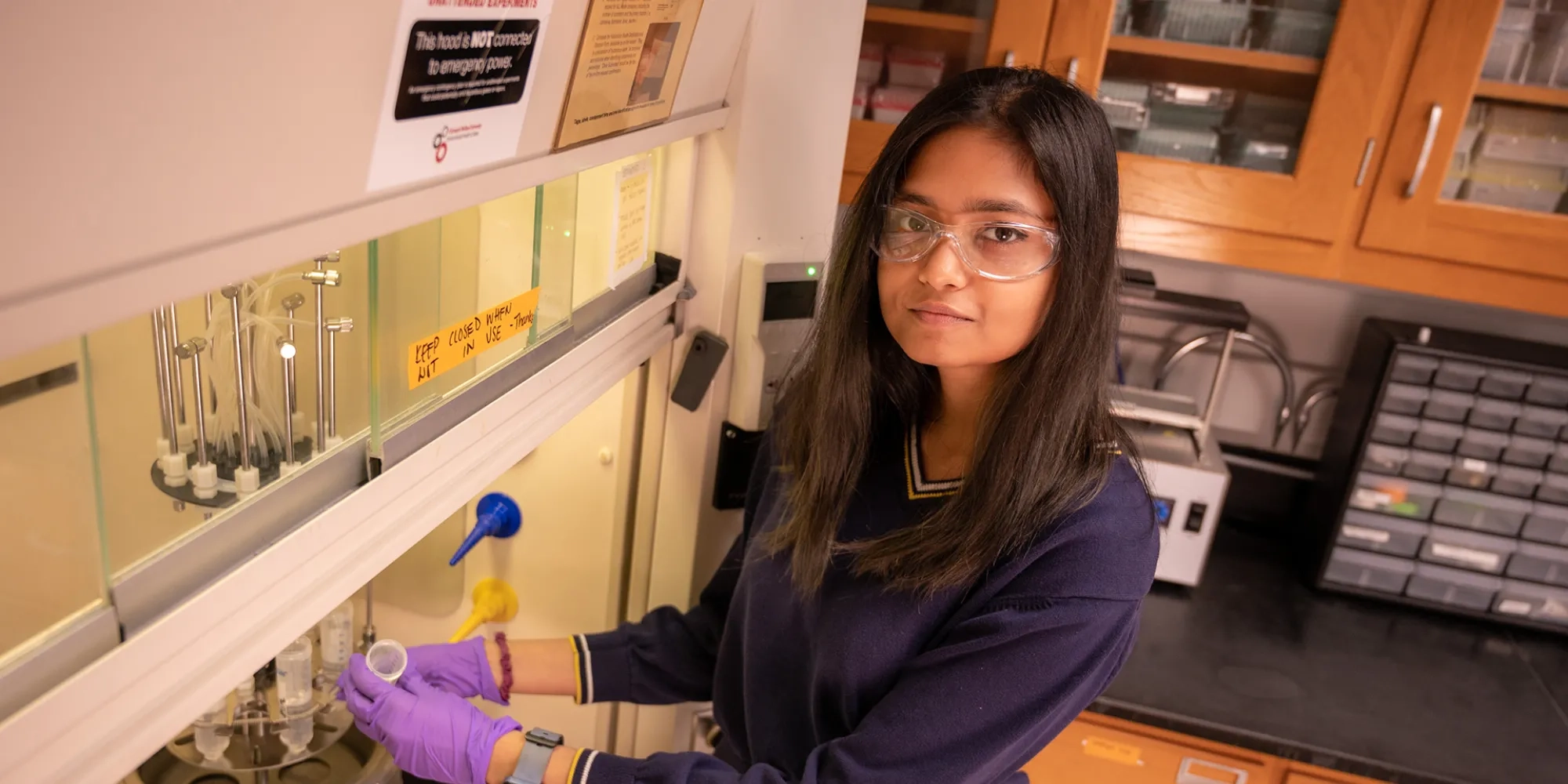
In This Section
Leenia Mukhopadhyay Awarded Steinbrenner Fellowship
By Kirsten Heuring Email Kirsten Heuring
- Associate Dean for Marketing and Communication, MCS
- Email jhduffy@andrew.cmu.edu
- Phone 412-268-9982
Leenia Mukhopadhyay wants to make a lasting impact on per-and polyfluoroalkyl substances (PFAS) research.
"PFAS, which are also known as 'forever chemicals,' are widespread in nature and basically everywhere," said Mukhopadhyay, a graduate student in the Department of Chemistry. "They are very slippery and long-lasting. They're mostly present in nonstick pans, food packaging, microwave popcorn and anything that's waterproof."
Despite being useful as a nonstick coating, PFAS are toxic to humans and wildlife. PFAS can have significant negative effects on humans, including causing developmental delays in children, increasing risk of some cancers and reducing the immune system's effectiveness.
Because these molecules are designed to be sturdy, they are capable of persisting for years in the environment and in organisms, with higher levels of PFAS being more dangerous for nearby organisms. But, Mukhopadhyay said researchers cannot effectively measure the levels of PFAS in waterways while conducting fieldwork, so they cannot see how nearby waterways and marine organisms have been contaminated.
Any affected marine organisms could have broader impacts for organisms up the food chain. For example, clams harvested from an area with high levels of PFAS could be eaten by humans, who may become sick.
Mukhopadhyay wants to create a test to allow people to sample sediment by a body of water and measure the levels of PFAS. This would allow anyone, from researchers to fishermen, to determine if a waterway was safe.
"I want to come up with a material for passive sampling, which can essentially act a lab in the palm of your hand," Mukhopadhyay said. "If you deploy it anywhere in the environment, you can see what the real time contamination profile is."
To create a substance to easily and quickly detect PFAS, Mukhopadhyay works in the McDonough Lab, headed by Assistant Professor of Chemistry Carrie McDonough.
McDonough said that Mukhopadhyay's work has the potential to show a larger picture of PFAS' impacts.
"Leenia is developing tools that will revolutionize environmental monitoring techniques in complex environments like marine sediments," McDonough said. "Her work will advance our understanding of the fundamental mechanisms determining contaminant uptake at the base of the marine food web. Understanding these processes will advance our understanding of contaminant accumulation and trophic transfer at all levels of marine food webs and will even help us to better understand the role of the ocean as a source of human exposure to PFAS."
Because of Mukhopadhyay's work, she was awarded a Steinbrenner Doctoral Fellowship through Carnegie Mellon's Steinbrenner Institute for Environmental Education and Research, which aims to change the way the world thinks and acts about the environment. These fellowships are awarded to second year Ph.D. students who are involved in environmentally focused, interdisciplinary research projects.
Mukhopadhyay plans to use the funding to further dive into her research. She said she hopes her work can help both humans and the environment.
"We all want to do our part for the environment. Research is doing my small part," Mukhopadhyay said.